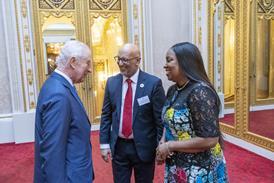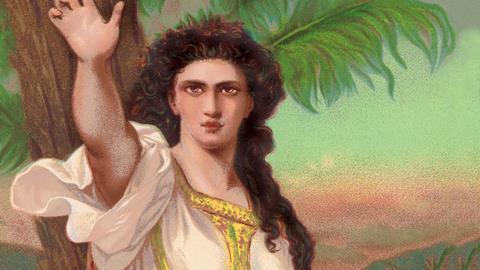Rev Katherine Chow highlights the shift in focus within the Western mindset about leadership, but points out the new direction is moving towards the ancient, biblical way
What is leadership and who gets to lead? In the past 200 years, shaped by the industrial economy, leadership in the West has focused on management, maximising value and technical competency. However, as we attempt to build more person-centred, agile and digitally savvy organisations, we are seeing a shift toward servant leadership. Because leadership isn’t only about managing people, but about serving the people we lead.
Servant leadership cultivates empathy, vulnerability, gratitude and self-awareness; it aspires to provide psychological safety for others, space for creativity and innovation and the development of high-performing teams with a human approach. Leadership thinking is shifting from the verbal, rational, analytical and linear to a style that also incorporates emotional intelligence, intuition, relationality and creativity. We need to lean not only on our left brain (where numeracy, logic and critical thinking dwell) but rediscover how our right brain (the source of our creativity, diplomacy and imagination) also shapes our leadership going forward.
Deborah: an example of a good leader
According to Barna research, young adults believe we are facing a crisis of leadership in our society because there are not enough good leaders. What exactly is a good leader? Well some leadership qualities like honesty, integrity and courage are timeless, transcend beyond cultures and generations and never go out of style. But our understanding of good leadership is also contextual, shaped by unique circumstances and not always transferable at all times to all people.
In Judges, God’s people faced the choice to either follow the preferences of the age, worshipping other idols, or to follow God faithfully. The recurring pattern was that God’s people turned away from loving and obeying him and instead did what felt right in their own eyes. With this deviation away from God’s heart and plan, darkness, depravity and despair emerged, resulting in oppression and social decay. God responded to the pain of his people by sending help through a chosen judge and leader.
Deborah is a role model for leadership during challenging times (see Judges 4 and 5). She was a prophetess, judge and ruler. She possessed character and wisdom, providing guidance and counsel to others. Deborah was not only a godly leader but was chosen specifically by God to lead in a time of crisis. She was a maternal figure, collaborating with and empowering others, building faith and courage in those around her and prophetically perceiving God’s plans. She understood her role and recognised the gifts and skills of the people around her. Deborah was a woman who taught and spoke God’s word and truth. She boldly played her part in restoring the social fabric by daring to lead.
Deborah understood that leadership is a gift from God, given ultimately for service, and she never stopped seeking his will
During this period, God’s people found themselves cruelly oppressed by a Canaanite ruler called Jabin and his war commander Sisera for over two decades. Sisera stole, raped, enslaved and exploited women. Through Deborah’s leadership, God rescued his people from a reign of terror and rape through the specific contributions and actions of women. Deborah didn’t dominate, oppress or exploit; she empowered, encouraged and excelled. She had been chosen by God at a particular time in a particular place for a particular task and her confidence came from him. She understood that leadership is a gift from God, given ultimately for service, and she never stopped seeking his will in difficult times. Deborah also happened to be a bit of a poet and songwriter too. She led with creativity, intuition, imagination, wisdom, logic and reasoning. She had a sharp mind, a soft heart and skilled hands. She used both the left and right sides of her brain.
Following our perfect leader
Good leadership is costly and sacrificial. The perfect servant leader example is Jesus. The One whom every imperfect human leader and role model in the Bible points to. Jesus gave us our mandate for servant leadership. He said: “whoever wants to become great among you must be your servant, and whoever wants to be first must be your slave – just as the Son of Man did not come to be served, but to serve, and to give his life as a ransom for many” (Matthew 20:26-28).
Who gets to lead? Well God has the final say on this. God has chosen, appointed and anointed women in the past and he continues to do that now through his Holy Spirit, prompting his daughters to rise up, to speak, to lead and to serve in a way that provides relief to the suffering, refuge for the brokenhearted, restorative justice for the marginalised and redemptive hope and healing for those who are hurting. In light of all that is happening in our world right now, and the kind of courageous, creative and compassionate leadership that is needed, I can’t help but wonder whether God might be whispering to us today: “Ladies, it’s time to lead.”
Katherine Chow is associate vicar at Holy Trinity Brompton in London. htb.org @htbchurch
































No comments yet